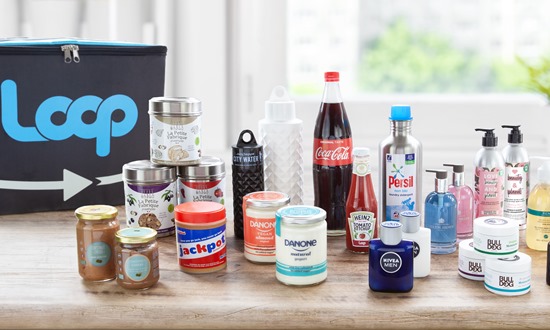
Called Loop, the platform enables shoppers to purchase refillable versions of food and drink, health and beauty and cleaning products online. Brands signed up in the UK include Heinz, Coca Cola, Unilever, Danone and Nivea. Customers pay a deposit fee on each piece of packaging that is refunded to them when they return the containers. They can make returns from home, by completing an online request for a pick-up, or by dropping used packaging to one of DPD’s 2,500 collection points. TerraCycle then receives the used packaging for cleaning. It has partnered with DHL to secure warehouse space for sanitisation, deposit return scanning and packaging clean containers for returns to product manufacturers. Loop was due to launch in the UK in March, but TerraCycle and Tesco took the decision to postpone the pilot as a result of Covid-19. During lockdown, the platform has continued to operate in the regions where it had already launched, including the US and Paris. "Tesco is the perfect partner to bring Loop to retail in the UK due to its commitment to sustainability, in combating plastics waste, and its operational scale as the UK’s biggest grocery retailer,” TerraCycle founder and chief executive Tom Szaky said. Tesco is notably striving to remove one billion pieces of plastic from products sold in UK stores by the end of 2020. It is also signed up to WRAP’s UK Plastics Pact, and, in a bid to meet the Pact’s requirements, has implemented a ‘4 Rs’ plastics packaging strategy. The strategy name stands for ‘remove, reduce, reuse, recycle’. The supermarket’s chief executive Dave Lewis said that Loop will help Tesco to develop more reusable packaging formats, describing the potential of reuse models as “exciting”. Other UK supermarkets piloting refill offerings include Waitrose & Partners and Marks & Spencer. Asda and Sainsbury’s, meanwhile, are due to launch refill trials in the near future. Plastics vs the pandemic As Bloomberg put it in a recent feature: Plastics had been falling out of favour – then came the virus. The wave of plastics action sparked by Blue Planet 2 in 2017 was de-prioritised overnight as public health (rightly) sky-rocketed up the agenda. Some businesses operating refill models were either mandated to close or chose to pause these services as they implemented new health and safety procedures. Last month, a coalition of 119 scientists from 18 countries published a joint statement assuring businesses and individuals that reusable containers, when used in systems where basic hygiene is implemented, do not increase the Covid-19 transmission risk. Time will tell what impact this has on the uptake of reuse model. In the meantime, edie has published an ‘in numbers’ feature charting public attitudes to plastics in the context of Covid-19, and a special episode of the Sustainable Business Covered Podcast for Plastic-Free July.







